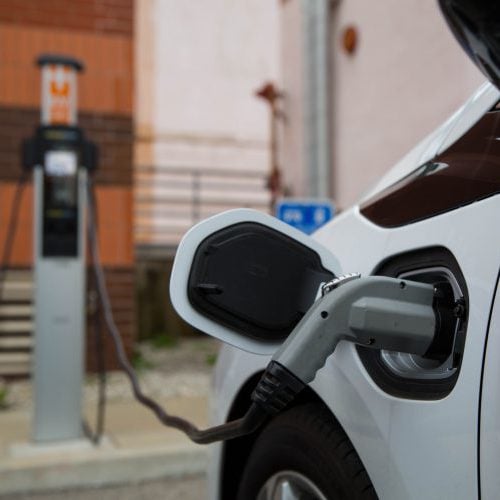Cars and Drivers
Volvo's Electric Car Story Is Not Too Compelling

Published:
Last Updated:

In an announcement from Volvo headquarters in Gothenburg, Sweden, the company said that beginning with the 2019 model year, every new Volvo car will come with an electric engine. That does not mean the company will be only electric cars, only that some electrification will be available on all cars.
The company said that it plans to introduce a “portfolio of electrified cars across its model range, embracing fully electric cars, plug in hybrid cars and mild hybrid cars.”
Volvo, which has been owned by China’s Zhejiang Geely Holding since 2010, plans to launch five full-electric cars between 2019 and 2021, three of which will be Volvo models and two will be high-performance all-electric cars from the company’s Polestar performance car division.
Volvo President and CEO Håkan Samuelsson said:
People increasingly demand electrified cars and we want to respond to our customers’ current and future needs. You can now pick and choose whichever electrified Volvo you wish. … This announcement marks the end of the solely combustion engine-powered car. Volvo Cars has stated that it plans to have sold a total of 1 [million] electrified cars by 2025. When we said it we meant it. This is how we are going to do it.
In one sense, what’s Volvo got to lose? U.S. sales sank 15% year over year in June to just 7,303 units. Global retail sales rose 5.7% to 54,351 units for the month, with sales in China, the company’s largest market, totaling just 10,113 units. Sales in Sweden were essentially flat at 7,246 units.
For the year to date, global sales are up 8.2%, with a rise of 27.6% in China and 6.2% in Sweden, and a drop of 7.0% in the United States. Sales in the Americas are down 4.9%.
All-electric vehicle (EV) sales totaled 265,000 in China last year, more than double the 110,000 EVs sold in all of Europe, but global volume totaled just 0.84% of all vehicles sold last year. According to EV tracking website EV-Volumes, global sales of EVs and plug-in hybrid EVs (PHEVs) are up 40% year over year as of the end of the first quarter. That puts the total plug-in car industry on a path to sell some 1.13 million cars this year, accounting for 1.2% of all cars sold in 2017.
Based on volume trends and current sales growth rates, EV-Volumes estimates that by 2030 8 out of 10 cars sold will be plug-in electrics, either EVs or PHEVs. That’s an almost unbelievable projection. Global sales totaled around 88 million units in 2016, and even if sales decline somewhat to, say, 85 million per year by 2030, that’s revving up an industry from around 1 million sales to 68 million sales in less than 15 years. Not impossible perhaps, but not trivial either.
Volvo’s estimated sales of 1 million total units between 2019 and 2025 looks positively cautious compared with the EV-Volumes estimates. Even Tesla Inc.’s (NASDAQ: TSLA) goal of producing 1 million EVs a year by 2020 underwhelms.
Every carmaker in the world has to some extent jumped on the EV bandwagon. Battery costs will fall as new battery makers in China ramp up and competition among automakers, combined perhaps with government incentives to buy EVs, could become fierce. Good for consumers, not-so-good for automakers. The companies that make the grade almost certainly will be the top volume sellers and the luxury niche sellers. Volvo will never be in the first group, but it has to put a stake in the ground to be included in the latter group. That’s what Tuesday’s announcement is all about.
Finding a qualified financial advisor doesn’t have to be hard. SmartAsset’s free tool matches you with up to 3 fiduciary financial advisors in your area in 5 minutes. Each advisor has been vetted by SmartAsset and is held to a fiduciary standard to act in your best interests. If you’re ready to be matched with local advisors that can help you achieve your financial goals, get started now.
Thank you for reading! Have some feedback for us?
Contact the 24/7 Wall St. editorial team.